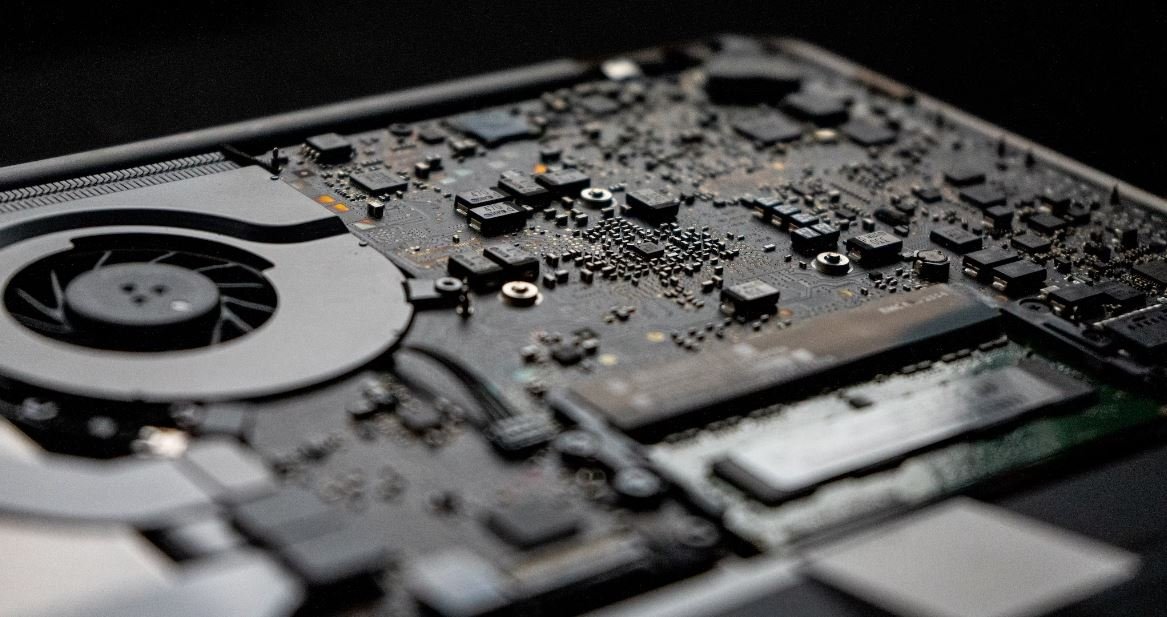Film Editing Jobs
Film editing is a crucial part of the post-production process in the film industry. The film editor is responsible for selecting and assembling raw footage into a coherent and engaging final product. Aspiring film editors interested in pursuing a career in this field can explore various film editing jobs that offer opportunities for creativity, collaboration, and growth.
Key Takeaways:
- Film editing is a crucial part of the post-production process in the film industry.
- Aspiring film editors can explore various film editing jobs that offer opportunities for creativity, collaboration, and growth.
1. **Film Editing Roles and Responsibilities**: A film editor’s primary role is to craft the narrative and structure of a film. They collaborate with directors, producers, and other members of the post-production team to shape the story through editing.
2. **Film Editing Skills**: Film editors need strong technical skills in using video editing software and hardware. They should also have a keen eye for detail, a creative mindset, and an understanding of storytelling techniques to effectively convey the intended message.
3. **Types of Film Editing Jobs**: Film editors can find employment in various sectors including feature films, documentaries, television shows, commercials, and online media. They can work as freelance editors or full-time employees at production houses or post-production studios.
4. **Film Editing Workflow**: The film editing process typically involves reviewing and organizing the raw footage, creating an assembly edit, refining the sequence, adding transitions and visual effects, refining the audio, and finalizing the color grading before exporting the final film.
5. **Salary and Job Outlook**: The salary of a film editor varies depending on factors such as experience, location, project budget, and industry demand. The job outlook for film editors is favorable, with opportunities for growth in the evolving digital media landscape.
One interesting aspect of film editing is that it requires a delicate balance between technical proficiency and artistic creativity. Film editors must meticulously work with the footage to shape the story while also bringing their own artistic vision to the project to enhance its impact.
Types of Film Editing Jobs
Film editors can choose from a range of editing jobs based on their interests and expertise. These jobs include:
- **Feature Film Editor**: This role involves editing full-length narrative films, collaborating closely with the director and using creativity to bring the script to life.
- **Television Editor**: Television editors work on episodic content, ensuring consistency in style and pacing across multiple episodes.
- **Documentary Editor**: Documentary editors assemble footage to create compelling narratives, often working with real-life events and interviews.
- **Commercial Editor**: Commercial editors create visually captivating short videos to promote brands, products, or services.
| Job Title | Average Salary |
|---|---|
| Feature Film Editor | $65,000 – $120,000 |
| Television Editor | $50,000 – $90,000 |
| Documentary Editor | $45,000 – $80,000 |
| Commercial Editor | $40,000 – $70,000 |
Skills Required for Film Editing Jobs
To be successful in film editing jobs, individuals need to possess the following essential skills:
- **Technical Proficiency**: Proficiency in video editing software such as Adobe Premiere Pro or Final Cut Pro is crucial for film editing jobs.
- **Attention to Detail**: Film editors must have a keen eye for detail to ensure visual and audio continuity, smooth transitions, and seamless editing.
- **Creative Thinking**: A creative mindset allows film editors to approach their work with fresh ideas and innovative storytelling techniques.
- **Collaboration**: Effective collaboration with directors, producers, and other team members is essential for understanding the vision and goals of the project.
- **Problem-Solving**: Film editors must possess strong problem-solving skills to overcome challenges and find creative solutions.
Film Editing Workflow
The film editing process involves several stages that gradually shape the raw footage into a final, polished film. The typical film editing workflow includes:
- **Review and Organization**: Film editors review and organize the recorded footage, categorizing clips based on scenes and takes.
- **Assembly Edit**: Editors create an initial assembly edit by stringing together the shots in the desired order, forming a rough version of the film.
- **Refining the Sequence**: Editors refine the sequence by trimming unnecessary footage, rearranging shots, and establishing the pacing and rhythm of the film.
- **Adding Transitions and Visual Effects**: Editors incorporate transitions, visual effects, and graphics to enhance the storytelling and visual appeal of the film.
- **Refining the Audio**: Editors work on sound design, adding music, dialogue, and sound effects to enhance the overall auditory experience.
- **Color Grading and Exporting**: The final stage involves finalizing the color grading to establish the desired mood and atmosphere, and exporting the film in the appropriate format for distribution or presentation.
Film Editing Job Outlook
The film industry continues to evolve with the advancement of technology and changing viewer preferences. As a result, the demand for skilled film editors remains steady. Film editors who keep abreast of new editing techniques, software, and industry trends are more likely to find job opportunities and career growth. With the increased influence of online media, there are also emerging opportunities in digital platforms and streaming services.
| Skill | Percentage of Job Postings |
|---|---|
| Adobe Premiere Pro | 74% |
| Final Cut Pro | 62% |
| Avid Media Composer | 43% |
| Able to work under tight deadlines | 56% |
In conclusion, film editing offers exciting career possibilities for individuals with a passion for storytelling, creativity, and technical proficiency. By acquiring the necessary skills, gaining experience, and staying updated with the latest industry trends, aspiring film editors can find fulfilling job opportunities across various sectors of the film industry.

Common Misconceptions
1. Film editing jobs are all about cutting scenes
One common misconception about film editing jobs is that they solely involve cutting scenes to create a cohesive narrative. While cutting is indeed a crucial aspect of film editing, it is just one part of the overall process. Film editors are responsible for much more than simply removing unnecessary footage. They also work on manipulating time, adding and adjusting visual effects, enhancing sound and music, and creating a seamless flow throughout the film.
- Film editors also have to carefully arrange and rearrange scenes to ensure the story makes sense.
- They often work closely with directors to understand their creative vision for the film.
- Film editors must have a strong understanding of pacing and rhythm to create engaging sequences.
2. Film editors have no creative input
Another common misconception is that film editors are simply technicians who follow instructions from directors without contributing creatively. In reality, film editors play a vital role in the storytelling process and have significant creative input. They have the power to shape the narrative, evoke emotions, and enhance the overall impact of the film through their editing choices.
- Film editors often make creative decisions about the order and timing of scenes to create a particular mood or build tension.
- They explore different possibilities and experiment with different editing techniques to enhance the story.
- Film editors collaborate with directors, cinematographers, and other members of the production team to achieve the desired artistic vision.
3. Film editing jobs can be done quickly
Many people assume that film editing is a quick and straightforward process. However, this is far from the truth. Film editing is a time-consuming and meticulous task that requires attention to detail and careful consideration of every frame. Editors often spend hours, days, or even months working on a single film, refining and perfecting it.
- Editors meticulously review and analyze the footage to select the best shots.
- They spend time adjusting color correction, adding visual effects, and fine-tuning sound design.
- Editors need to compare different takes and make decisions about which ones to use, which can be a time-consuming process.
4. Film editing is a solitary job
Contrary to popular belief, film editing is not a solitary job that requires working alone in a dark room for hours on end. While there are undoubtedly moments when editors need to focus and work independently, they also collaborate extensively with other members of the film crew.
- Editors often work closely with directors to understand their storytelling goals and objectives.
- They communicate with cinematographers to ensure visual consistency and seamless transitions.
- Editors collaborate with sound engineers to ensure the synchronization of sound and visuals.
5. Film editing is only done on expensive software
Many people believe that film editing can only be done using expensive software and professional editing systems. While high-end software is commonly used in the film industry, there are also many affordable and accessible editing tools available to aspiring editors. The advancement of technology has made it easier for anyone interested in film editing to learn and practice their skills.
- There are free editing software options available that offer a range of basic editing functions.
- Online platforms and websites provide tutorials and resources for aspiring film editors.
- With the right knowledge and creativity, it is possible to create compelling edits using even the most basic software.

Film Editing Salary Comparison
Below is a comparison of the average annual salaries for different film editing positions in various countries. These numbers are based on industry data and can vary depending on factors such as experience, location, and the project’s budget.
| Country | Assistant Editor | Editor | Senior Editor |
|---|---|---|---|
| United States | $45,000 | $75,000 | $100,000 |
| United Kingdom | £25,000 | £40,000 | £60,000 |
| Canada | $40,000 | $60,000 | $80,000 |
| Australia | $35,000 | $55,000 | $75,000 |
Film Editing Job Growth Rate
The field of film editing has been experiencing steady growth over the past decade, with an increasing demand for skilled professionals in the industry. The table below shows the projected job growth rate for film editors in the next five years.
| Year | Job Growth Rate (%) |
|---|---|
| 2022 | 8 |
| 2023 | 7 |
| 2024 | 6.5 |
| 2025 | 6 |
| 2026 | 5.5 |
Top Film Editing Schools
Quality education plays a crucial role in shaping a successful film editing career. The following table highlights some of the top film editing schools known for their comprehensive curriculum and renowned faculty.
| School | Location |
|---|---|
| American Film Institute | Los Angeles, California, USA |
| University of Southern California (USC) | Los Angeles, California, USA |
| London Film School | London, UK |
| National Film and Television School | Beaconsfield, UK |
| Tisch School of the Arts (NYU) | New York City, New York, USA |
Most Iconic Film Editors
Throughout history, several film editors have left an indelible mark on the industry. The following table showcases some of the most iconic film editors and the films they have worked on:
| Editor | Famous Films |
|---|---|
| Thelma Schoonmaker | Casino, Raging Bull, The Departed |
| Walter Murch | The Godfather, Apocalypse Now, The English Patient |
| Sally Menke | Pulp Fiction, Kill Bill: Volume 1, Inglourious Basterds |
| Michael Kahn | E.T. the Extra-Terrestrial, Raiders of the Lost Ark, Jurassic Park |
| Anne V. Coates | Lawrence of Arabia, The Elephant Man, Erin Brockovich |
Common Film Editing Software
Professional film editors rely on a variety of software to bring their artistic vision to life. The table below outlines some of the most commonly used film editing software packages in the industry.
| Software | Features |
|---|---|
| Adobe Premiere Pro | Advanced editing tools, integration with other Adobe products |
| Avid Media Composer | Industry-standard software, robust media management |
| Final Cut Pro X | Intuitive interface, powerful organization and workflow tools |
| DaVinci Resolve | Professional color grading capabilities, collaboration features |
| Lightworks | Flexible editing options, multi-platform compatibility |
Academy Awards for Film Editing
The Academy Awards, also known as the Oscars, recognize outstanding achievements in various categories, including film editing. The table below lists the winners of the Best Film Editing category for the past five years.
| Year | Winner | Film |
|---|---|---|
| 2021 | Sound of Metal | Mikkel E.G. Nielsen |
| 2020 | Ford v Ferrari | Michael McCusker, Andrew Buckland |
| 2019 | Bohemian Rhapsody | John Ottman |
| 2018 | Dunkirk | Lee Smith |
| 2017 | Hacksaw Ridge | John Gilbert |
Skills for a Successful Film Editing Career
Beyond technical proficiency, film editors need a diverse set of skills to excel in their careers. The table below highlights some of the essential skills that contribute to a successful film editing profession.
| Skill | Description |
|---|---|
| Attention to Detail | Ability to meticulously review footage for continuity and errors |
| Creativity | Utilizing artistic intuition to enhance storytelling through editing |
| Time Management | Efficiently organizing and prioritizing tasks within project timelines |
| Collaboration | Working effectively with directors, cinematographers, and sound designers |
| Problem Solving | Ability to overcome technical and narrative challenges during editing |
Major Film Studio Editing Departments
Large film studios typically have dedicated editing departments responsible for post-production tasks. The following table lists some of the major film studios and their respective editing departments.
| Studio | Editing Department Name |
|---|---|
| Warner Bros. Pictures | Editorial Services Department |
| Universal Pictures | Post Production Editorial |
| Disney Studios | Editorial Department |
| Paramount Pictures | Edit Services |
| Sony Pictures Entertainment | Post Production Editorial Services |
Film Editing Union Memberships
Many film editors are affiliated with unions that protect their rights and negotiate contracts. The table below depicts some prominent film editing unions and their corresponding memberships.
| Union | Membership |
|---|---|
| Editors Guild | Hollywood movie editors and post-production professionals |
| American Cinema Editors (ACE) | Membership for accomplished film editors |
| EditFest | Organization for freelancers and independent film editors |
| Cinema Audio Society (CAS) | Joint membership opportunities for sound editors and mixers |
| Visual Effects Society (VES) | Collaborative membership for film editors and VFX artists |
Film editing jobs offer a combination of creative expression and technical precision, making it a captivating field for those with a passion for storytelling. From a salary comparison among different countries to the most iconic film editors and their works, this article has explored various aspects of film editing. Additionally, it has brought attention to key factors such as job growth rates, top educational institutions, essential skills, software tools, prestigious awards, studio departments, and union memberships. Aspiring film editors can use this information to gain insights into the industry and make informed decisions about their careers. With dedication and honed skills, they can contribute to the magic of cinematic storytelling.
Frequently Asked Questions
What are film editing jobs?
Film editing jobs refer to positions in the film industry where professionals are responsible for assembling, cutting, and rearranging video and audio footage to create a coherent and compelling final product.
What qualifications do I need to become a film editor?
While there are no strict educational requirements, most film editors hold a bachelor’s degree in film editing, film production, or a related field. Strong technical skills with editing software and a thorough understanding of storytelling techniques are essential.
How do I find film editing jobs?
There are several ways to find film editing jobs. You can search online job boards, network with industry professionals, join filmmaking organizations, or even create your own portfolio website to showcase your work and attract potential clients or employers.
What skills are necessary for film editing jobs?
Film editors need to have a strong attention to detail, excellent communication skills, and the ability to collaborate effectively with directors and other members of the post-production team. Proficiency in editing software, understanding of different film genres and visual storytelling techniques are also essential.
What are some common job titles for film editors?
Film editors may be referred to by various titles depending on the specific role they play in the post-production process. Some common job titles include film editor, video editor, assistant editor, sound editor, and visual effects editor.
What is the average salary for film editors?
The average salary for film editors can vary depending on factors such as location, experience, and the budget of the project. According to the U.S. Bureau of Labor Statistics, the median annual wage for film editors in 2020 was $63,040.
What are the different types of film editing jobs?
There are various types of film editing jobs, each with its own focus and responsibilities. Some examples include feature film editing, documentary editing, television editing, commercial editing, and music video editing.
What is the workflow for film editors?
The workflow for film editors typically involves several stages, including logging and organizing footage, creating a rough cut, refining the edits, adding sound effects and music, and finalizing the project. Collaboration with directors and other team members is crucial throughout the process.
What software is commonly used by film editors?
Film editors commonly use software such as Adobe Premiere Pro, Avid Media Composer, Final Cut Pro, and DaVinci Resolve. These tools provide a wide range of features and functionalities to facilitate the editing process.
Can film editors work remotely?
Yes, film editors can work remotely, especially with the advancements in technology and the availability of high-speed internet. Remote work has become increasingly common in the industry, allowing editors to collaborate with directors and clients from different locations.




